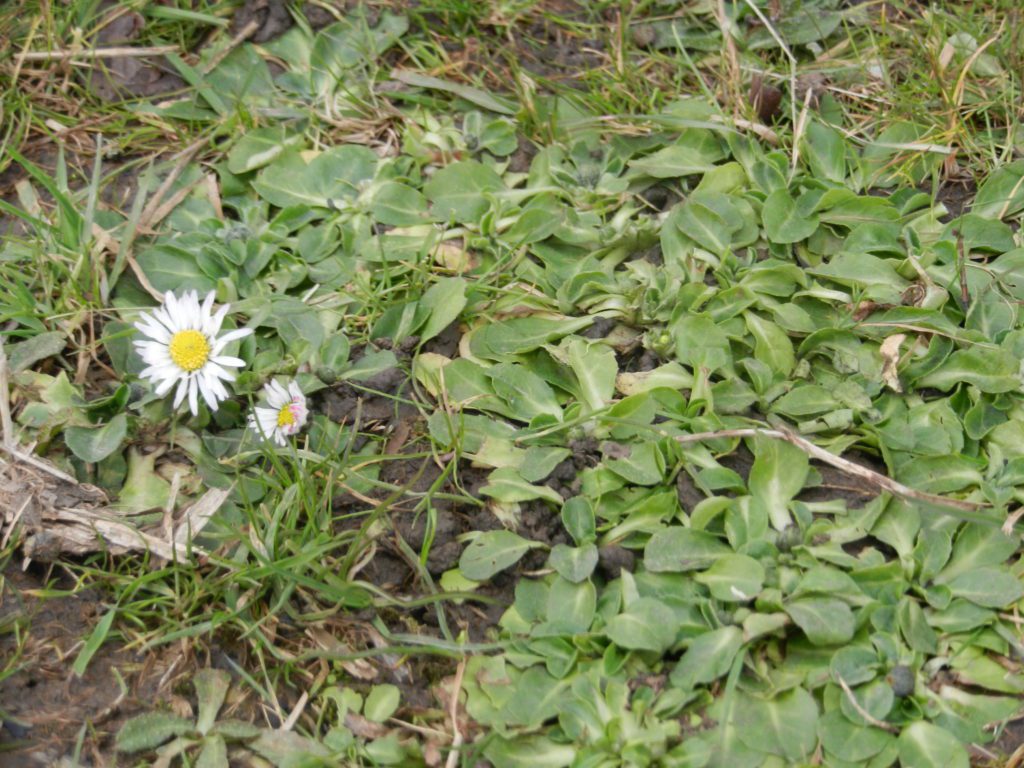
This photo, following the theme set out in Atheism 1, shows a cluster of daisies, ground cover perennials, with one root in flower. Take in March it is not so surprising to see one in flower, but it is quite early; the day was frosty but the sun was shining as evidenced by the open flowers. It invites a question ‘Are there some wild plants that could be found in flower across 12 months of the year?’. I think there are, although the severity of the season would have an impact and the flowers wouldn’t always be in the same patch throughout the year. Daisy is one, herb robert certainly and possibly dandelion. The photo above also examples the need for ground cover plants to flower early, later in the spring and summer they likely will be overwhelmed by larger plants and be deprived of sunlight – an evolutionary adaptation.
Charles Darwin’s publications, ‘On the Origin of the Species’, 1859, and ‘The Descent of Man’, 1871, were surely revolutionary. The product of life-long study they opened the door into a true explanation of a fundamental thought that had engaged all world religions, ‘How things came to be’. Compared with today Darwin had limited archaeological evidence but just enough to show that over time creatures changed, changed gradually but all the time adapting to their environment. This was true of Man as much as of any lifeform on Earth, the strands of hominids forming the ancestors of homo sapiens. There now exists much more evidence about the ancestral creatures of modern animals and, indeed, plants, trees and the like. By comparison, it has to be said that Man came very late on the scene and has experienced a meteoric rise to global dominance, and all that means for good and ill. Is Man still evolving? The answer must be yes because evolution is a universal force (s.p.b.s) embracing all life. It follows also that life on other planets will be evolving, adapting to what environmental conditions in their location in the Universe.
It is comforting that, at the moment, we are living at a time when respect for the environment has high priority, although not everywhere and not all the time.
(to be continued)